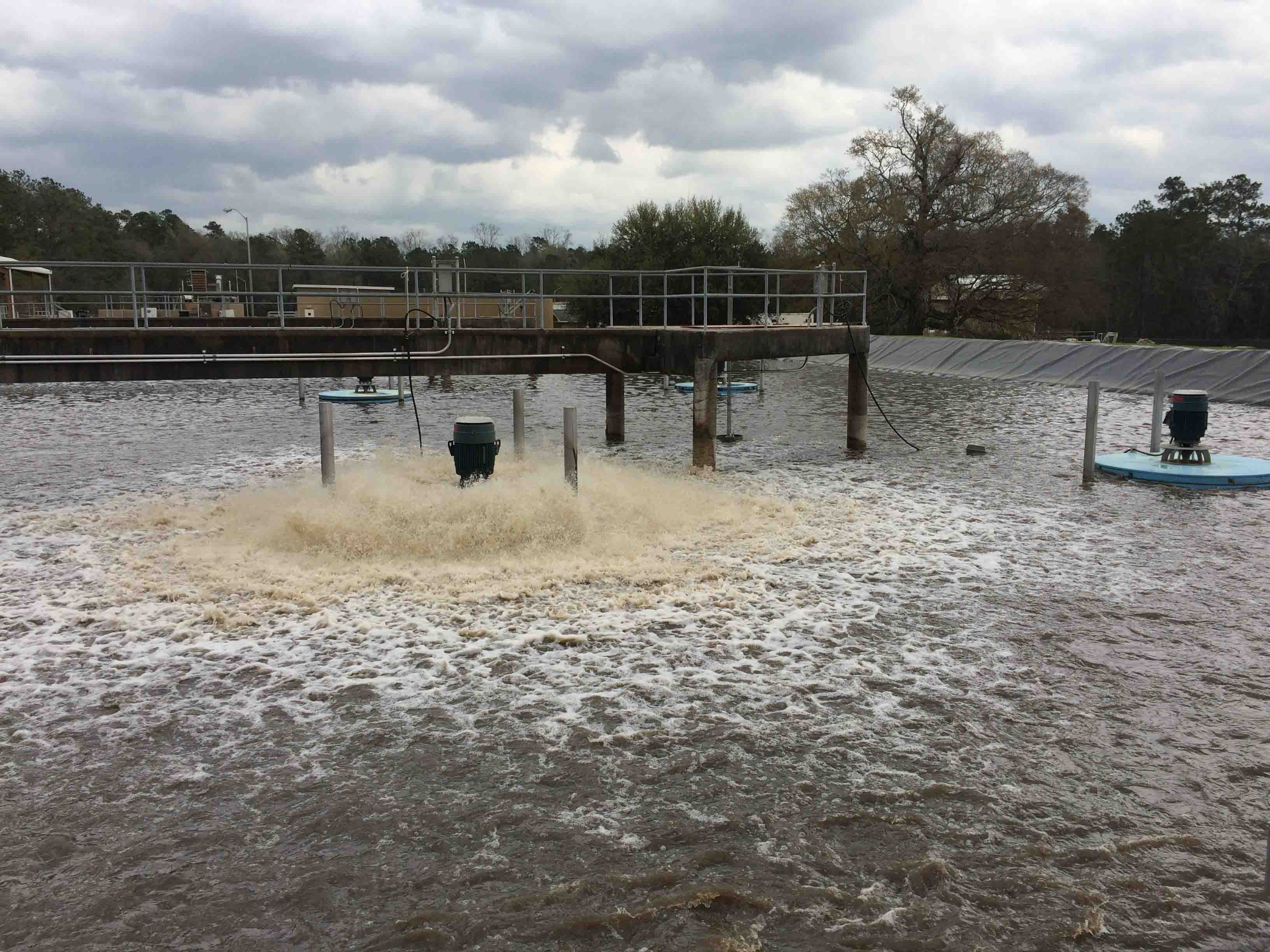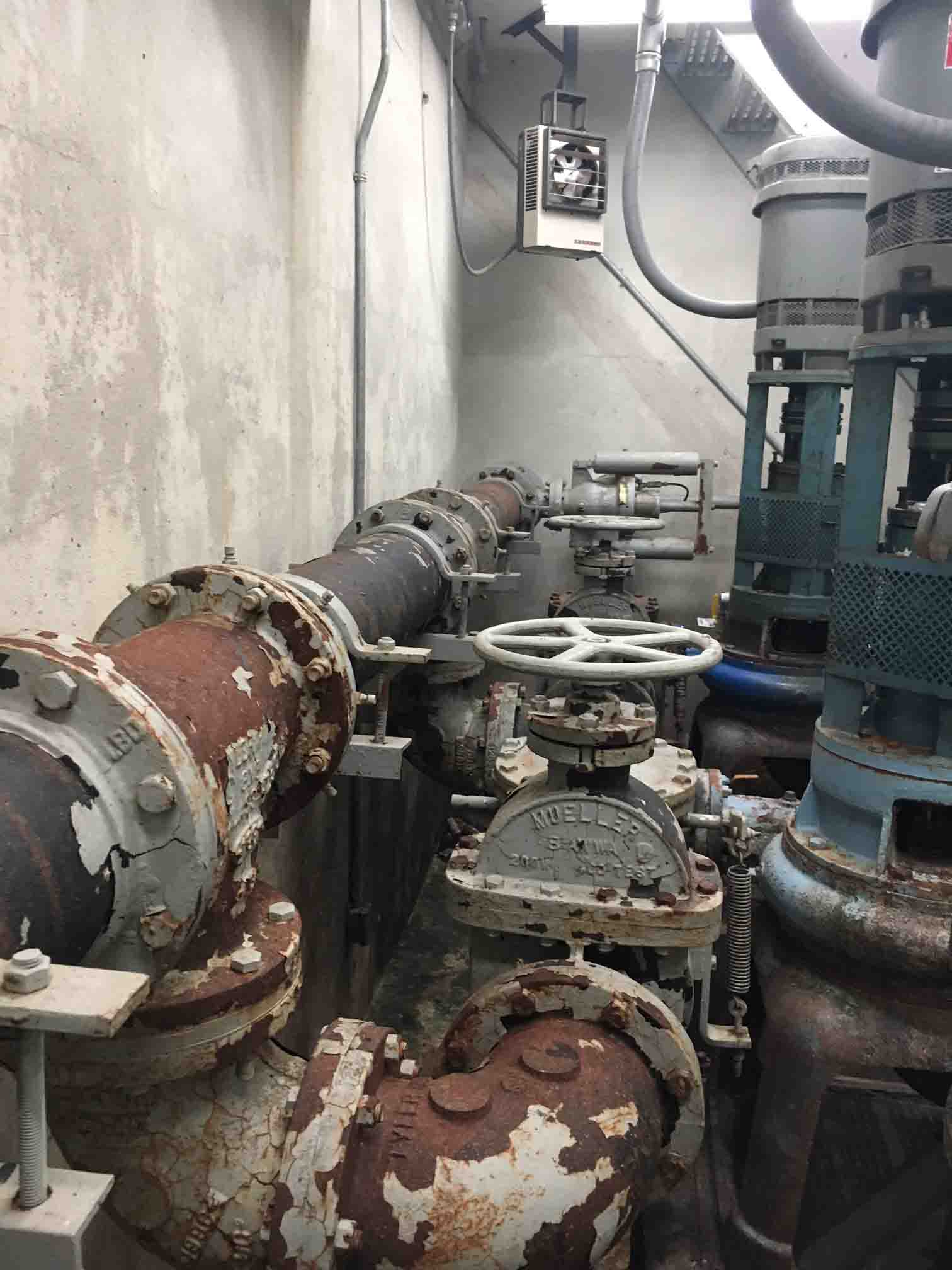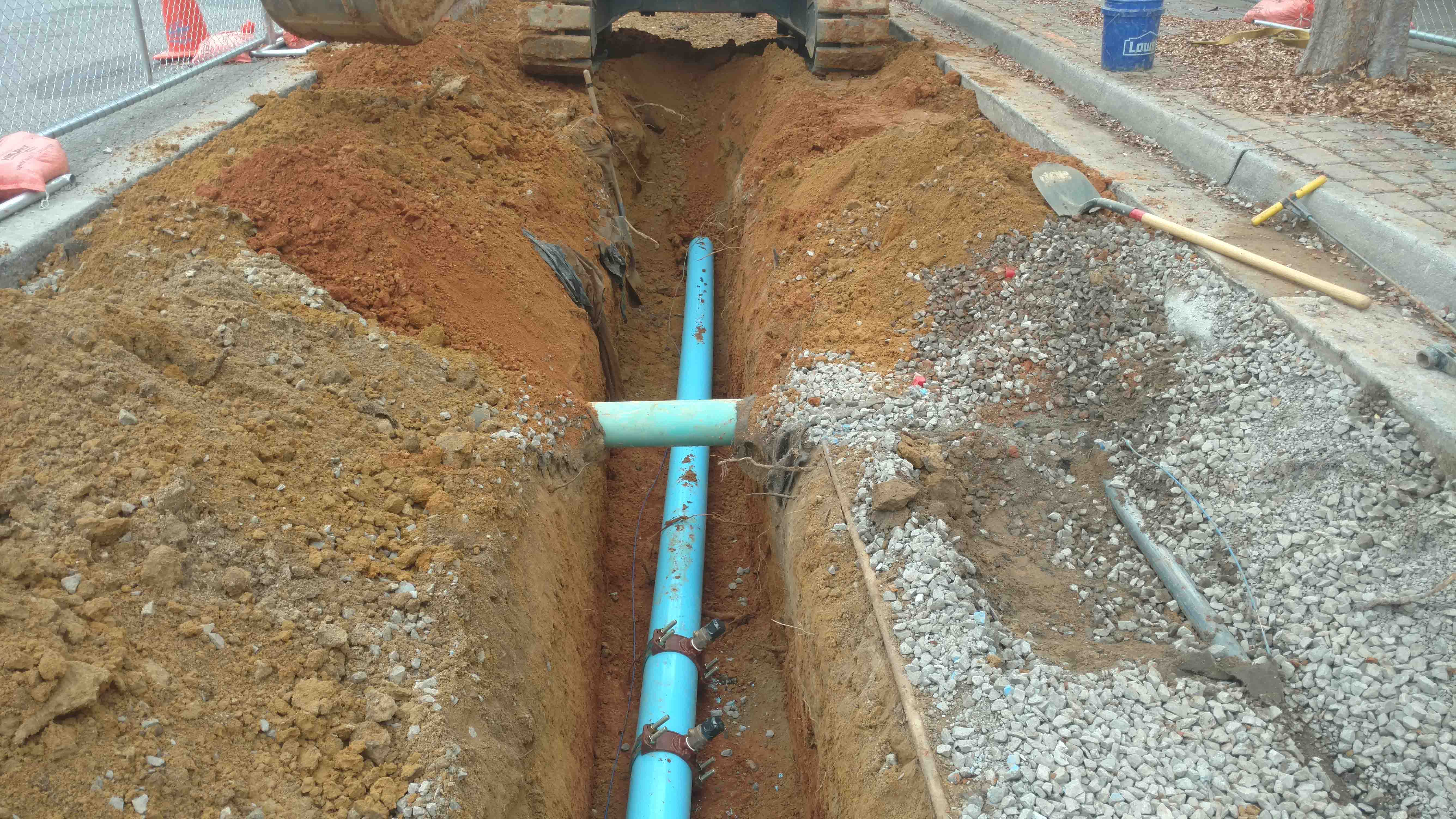With more than 5 million people living in South Carolina — a benchmark hit three years ahead of projections — it is no surprise that water and sewer infrastructure in South Carolina will require substantial investment. After all, many of these systems were built for less populated communities and will need upgrades to better serve existing populations and allow for continued growth.

The City of Walterboro accessed several funds, including an SRF loan and an RIA grant to upgrade its wastewater treatment plant, scheduled to be completed this year. Photo: AECOM.
Pipes, pump stations and treatment plants are designed and permitted based on current conditions and reasonable growth. So, what happens when that growth is faster than anticipated or when system components exceed their useful life and serve as a barrier to new development?
The cities of Union, Aiken and Walterboro were able implement their upgrades in a more timely manner with funds from State Revolving Fund loans and Rural Infrastructure Authority grant programs as well as other federal and state resources.
One of the factors RIA officials consider when reviewing applications for economic infrastructure grants is whether system improvements will help accommodate new development or help existing businesses create or retain jobs. By laying the proper infrastructure foundation, cities and towns can prepare for a more sustainable future by ensuring reliable services for both existing and new customers. Such investments will help grow economies, create new jobs and boost economic opportunities.
For many utility systems, problems such as water loss and disruption, as well as outdated technology, are a direct result of the challenge of finding resources to maintain and upgrade the infrastructure. In order to continue serving the local residents and businesses sufficiently, improvements to these systems are not only necessary for them to function well but often coincide with a system's requirement to meet regulatory standards.
For an example of this, look to the City of Union. Over the last few years, Union has been at the center of economic activity for Union County, where significant industrial growth has occurred.

Construction to upgrade the City of Union's Meansville Road Pump Station is
expected to begin in late June or July. Photo: City of Union.
In March of last year, Gestamp, an automotive supplier, announced an expansion and $129 million in capital investment that is projected to bring 130 new jobs to the area. Other nearby industries that rely heavily on wastewater treatment have also required increased wastewater flows over the past few years.
It was apparent this growth would put a strain on a nearby pump station and would cause service disruptions to its customers, including schools, businesses and residents. In the past two years, the city spent $30,000 on emergency repairs alone. With a new hospital also slated for construction in 2019, increasing capacity in this part of the service area is critical. To prepare for the future demand, the City of Union is expanding the pump station's capacity to handle this increased volume, ensuring that all users will have access to reliable sewer infrastructure. The city awarded the design phase to an engineering firm in December of 2017.
"These improvements position the city for the economic growth we are experiencing today and in the future," said Joe Nichols, the City of Union's utilities director who also serves as chairman of the Union County Development Board.
In downtown Aiken, a similar situation occurred.
The Aiken Renaissance area is the historic and cultural center of the city, easily recognizable by many tourists and South Carolinians alike. To keep the momentum going, city leaders developed a plan to address the deteriorating and undersized water lines that were serving the area's retail stores, restaurants and offices.

The City of Aiken's Newberry Street Phase 1A Project included improvements
to stormwater infrastructure. Photo: City of Aiken.
The City of Aiken was able to increase reliability and maximize the opportunities for new development in this highly visible area. It did this through line size upgrades — increasing the diameter of the pipe in parts of the project from a 4 inches to 6 inches — and looping portions of the system to replace dead-end lines with a continuous flow.
In the City of Walterboro, the challenge was two-fold. The existing wastewater treatment plant did not meet current environmental standards. At the same time, the city wanted to lay the groundwork for economic development. City leaders recognized the need for a major upgrade to the wastewater treatment plant's infrastructure, increasing its capacity by nearly 70 percent to better serve existing residents and also to enhance the system's capability to support future economic growth.
"With outside funding, cities can tackle these bigger projects all at once," said Bonnie Ammons, executive director of the S.C. Rural Infrastructure Authority. Otherwise, a city may be unable to undertake the project at all or may only be able to proceed in a piecemeal manner, as funding becomes available on a recurring basis from the city's annual budget.
"Concern with that approach is that growth doesn't always wait around."
